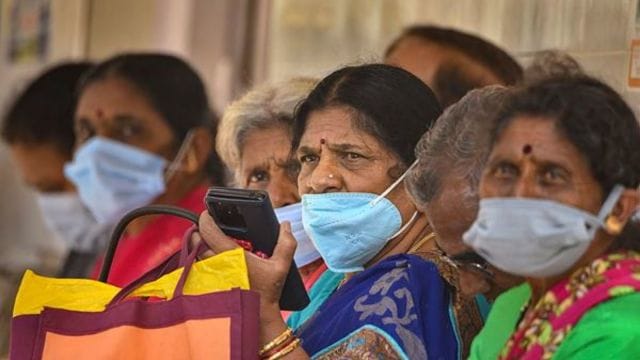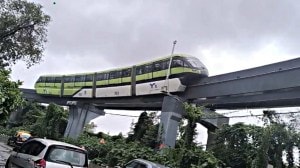With a surge of 19 new JN.1 cases, Maharastra’s tally climbs to 29
State govt seeking guidance from Covid task force on whether to invest in more vaccine doses.
 As of December 30, there were 613 active cases, with 573 individuals (93.5 percent) in home isolation, 40 (6.5 percent) admitted to hospitals, comprising 30 (4.9 percent) in non-ICU wards and 10 (1.6 percent) requiring intensive care unit (ICU) admission. (PTI/Representational)
As of December 30, there were 613 active cases, with 573 individuals (93.5 percent) in home isolation, 40 (6.5 percent) admitted to hospitals, comprising 30 (4.9 percent) in non-ICU wards and 10 (1.6 percent) requiring intensive care unit (ICU) admission. (PTI/Representational)As many as 19 more individuals have been detected with the new variant JN.1 via genome sequencing, elevating the total caseload of JN.1 to 29 in Maharashtra. The surge in cases has raised concerns, particularly with the highest number of instances reported in Pune.
The distribution of JN.1 variant cases is as follows: Pune reported 15 cases, Thane 5 cases, Beed 3 cases, Sambhjinagar 2 cases, while Kolhapur, Akola, Sindhudurg, and Nashik reported one case each.
However, all patients were mildly symptomatic and recovered without complications. As per the state health department, most of the infected patients were from the vulnerable group of patients above the age of 50 with comorbidities.
“In the face of the new Covid variant, the most vulnerable among us are at heightened risk. Those with compromised immunity or pre-existing conditions must prioritise precautions. Vaccination remains our strongest defence.
Additionally, consistent mask-wearing, practicing hand hygiene, and maintaining social distance are crucial. It’s a collective responsibility to shield the vulnerable. Let’s unite in our commitment to safeguarding lives and defeating challenges posed by this evolving virus,” said Dr Raman Gangakhedkar, ex-head of epidemiology at the Indian Council of Medical Research, who currently heads the Covid task force in Maharashtra.
On Sunday, a total of 131 new Covid cases were detected, a slight drop in detection as with on Saturday when a total of 172 were diagnosed with Covid cases.
On Sunday, as many as 12,405 individuals underwent testing, including 2,202 RT-PCR and 10,203 RAT tests. The reported test positivity rate, indicating the proportion of positive cases among those tested, increased slightly to 1.05 per cent, as compared with Saturday’s figure of 0.94 per cent. On Saturday, total of 15,136 people were tested.
As of December 30, there were 613 active cases, with 573 individuals (93.5 per cent) in home isolation, 40 (6.5 per cent) admitted to hospitals, comprising 30 (4.9 per cent) in non-ICU wards and 10 (1.6 per cent) requiring intensive care unit (ICU) admission.
The number of positive cases weekly indicate a concerning trend, with 21 cases reported from December 4 to 10, followed by a slight increase to 16 cases from December 11 to 17. However, a significant surge occurred from December 18 to 24, with 153 cases, and a substantial spike in the final week of the year, reaching 701 cases from December 25 to 31, indicating a noteworthy escalation in Covid infections.
“The new variant JN.1 exhibits heightened infectiousness without a corresponding increase in virulence. Globally, hospitalisation rates remain comparatively low. While its transmissibility demands increased vigilance, it’s reassuring that severe outcomes have not surged proportionately,” said Dr Rahul Pandit, Chair Intensive Care Unit at HN Reliance Hospital and former member of the state Covid task force.
In response to the surge in coronavirus cases linked to the JN.1 variant, the state government is seeking guidance from a newly formed task force on whether to invest in additional Covid vaccine doses. Currently holding an unused inventory of 16,000 doses of intranasal vaccine iNCOVACC acquired in April, the decision on further procurement was discussed in a recent task force meeting. Despite a previous spike in cases, only 4,000 of the initially procured 20,000 iNCOVACC doses have been utilised in the last nine months. Individuals keen on vaccination can still avail themselves of the current stock at public centres.







